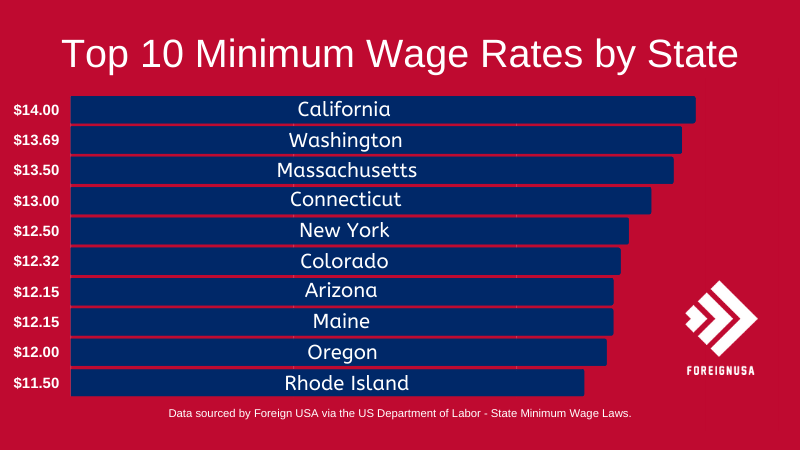Maine’s minimum wage is higher than the federal minimum wage, and it’s set to rise to $7.25 an hour in 2022. This increase also applies to tipped workers. Employers are also required to post posters about the new minimum wage. If you are an employer in Maine, you should know the new law.
Minimum wage in Maine is $7.25 per hour
According to the Maine State Chamber of Commerce, the minimum wage will rise in the state automatically. The increase is intended to help employers keep up with inflation, which drives the CPI higher. It is not, however, clear how many businesses will actually benefit from this increase. Businesses will have to adjust their costs in order to stay competitive, and that could be difficult for small businesses.

Wage and hour laws govern how much employees should be paid for the time they work, including breaks for rest and mealtimes. In Maine minimum wage is $7.25 per hour, but many workers are entitled to more. In addition to the federal minimum wage, employers must pay their employees overtime and compensate employees for meal and rest periods.
It is higher than the federal minimum wage in 2022
If you’re looking for a job in Maine, you should know that it’s possible to earn more than the federal minimum wage. In Maine, the minimum wage is calculated hourly. Some cities will have their own higher rates, and there are also additional rules for businesses that are regulated by the state.
The federal minimum wage is set at $7.25 an hour for non-tipped employees and $2.13 for tipped employees. But several states will raise the minimum wage in 2022. In 2022, most states will increase their rates by a certain percentage of the cost of living. Some states will also increase their tip credit and minimum cash wages for tipped workers.
It applies to tipped workers
The state of Maine allows employers to count tip credit toward the minimum wage. In other states, employers cannot count tips as income, but in Maine, employers can count tips as if they were paid directly to the employee. However, the employer must establish a tip pool, which requires the employees to contribute a portion of their tips.

Maine minimum wage law requires employers to pay their workers at least the federal minimum wage. However, there are some exceptions. The law does not cover agricultural workers or students, as well as employees who earn sales commissions.
It requires employers to post posters
Under Maine labor law, employers must display seven mandatory labor law posters in their workplaces. These include posters about Minimum Wage, the Whistleblower’s Protection Act, Workers’ Compensation, and Video Display Terminals. Businesses must also post federal required labor law posters. The posters should be clearly visible and easy to find.
Posters are required for all Maine businesses with one or more employees. These posters must be posted in a visible and easily accessible location, and employers are required to update them periodically. In addition, employers must post posters about minimum wage, family leave, and whistleblower protections. The Maine Department of Labor provides posters on these laws.
It requires sexual harassment education for all employees
The state of Maine has made it mandatory for certain employers to provide sexual harassment training to their employees. This training must cover the definition of sexual harassment under state and federal laws, examples of sexual harassment, and how to file a complaint. It also provides information about legal recourse for an employee who has experienced sexual harassment, such as access to the Maine Human Rights Commission. The training must also outline the protections that an employee has against retaliation for filing a complaint.
Maine law requires employers to provide sexual harassment education to new employees and to provide additional training for those in managerial and supervisory roles. The state considers all workers employees, whether they are self-employed or employed. The status of an individual depends on state and federal law, and any misclassification of a worker could result in penalties.




